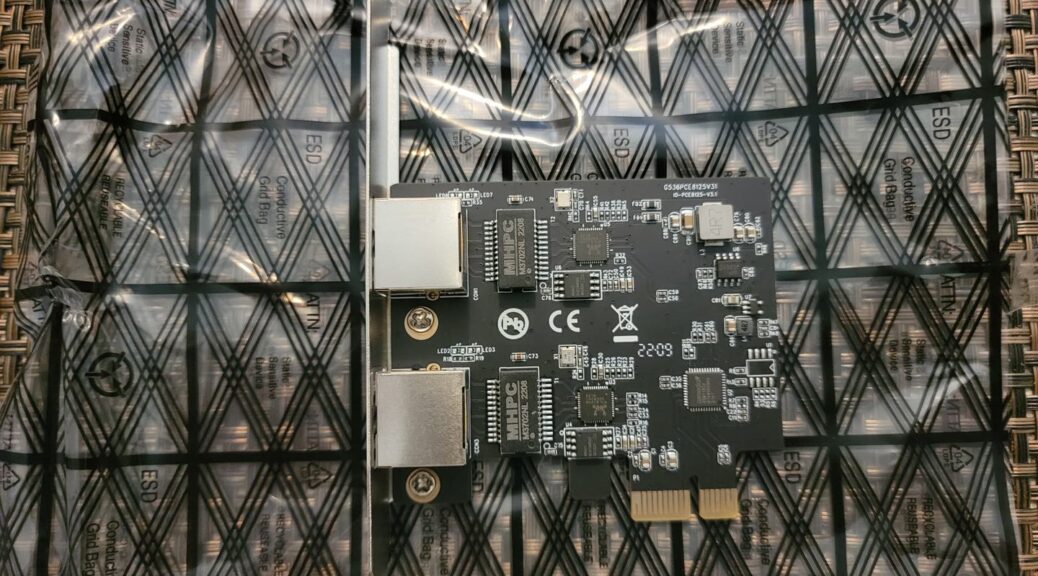
The IOCREST PCI Express x1 to Dual 2.5gbit LAN Card (Realtek RTL8125B)
Hi everyone,
Today, we’ll start one of the products I got to upgrade my home network to 2.5gbit/s speeds. It is the IOCREST PCI Express x1 to Dual 2.5gbit/s LAN Card, using 2 Realtek RTL8125B chipset. The reason for this upgrade is that my current ISP (Internet Service Provider) company provided me with a new modem to replace my previous one which had a single Gigabit Ethernet port. The new modem is basically the same, except that it now uses a 2.5gbit/s Ethernet port.
All of my hardware up to this point was up to 1gbit/s, so I took this opportunity to upgrade it, while doing some changes to my network.
To make the most of this new card, I basically replaced my main router and configured my server machine to act as a DHCP server. This has the advantage of making use of one of this card’s 2.5gbit port, connected to the modem, while also having a better, higher performance than what the router had. One thing to note is that my current internet plan goes up to a gigabit of speed, but there have been reports of some people getting a bit more of speed due to the usual overprovisioning companies perform to their modems.
Unboxing
This card came in a simple cardboard box:
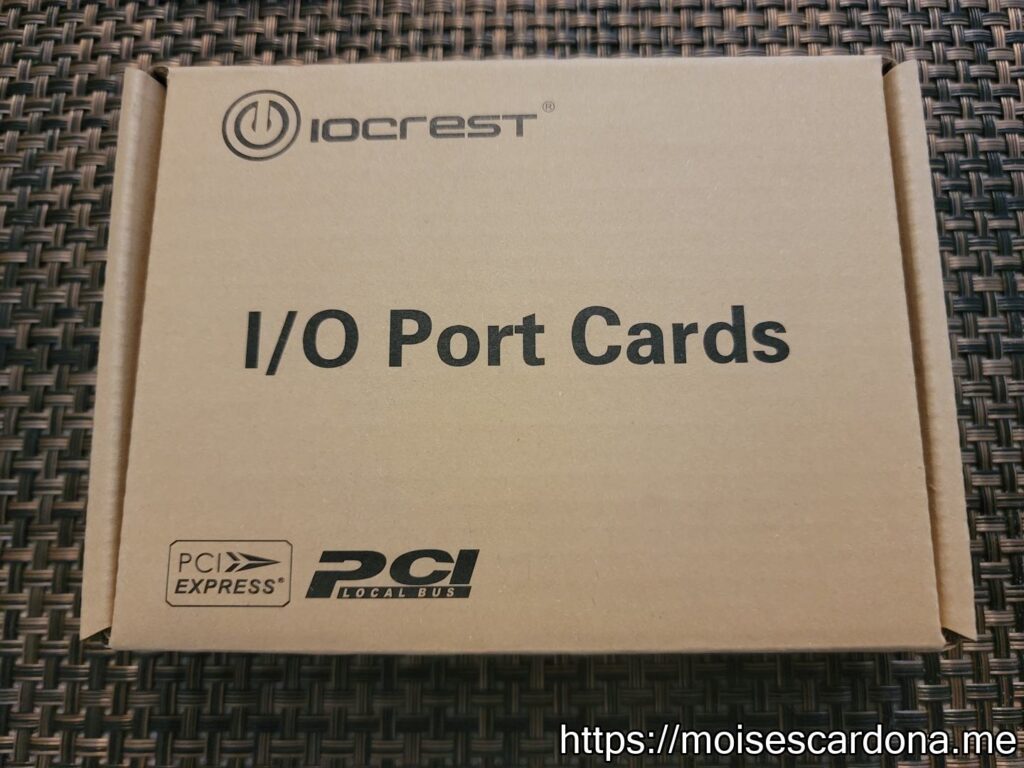
When we open it, we see the card on the top:
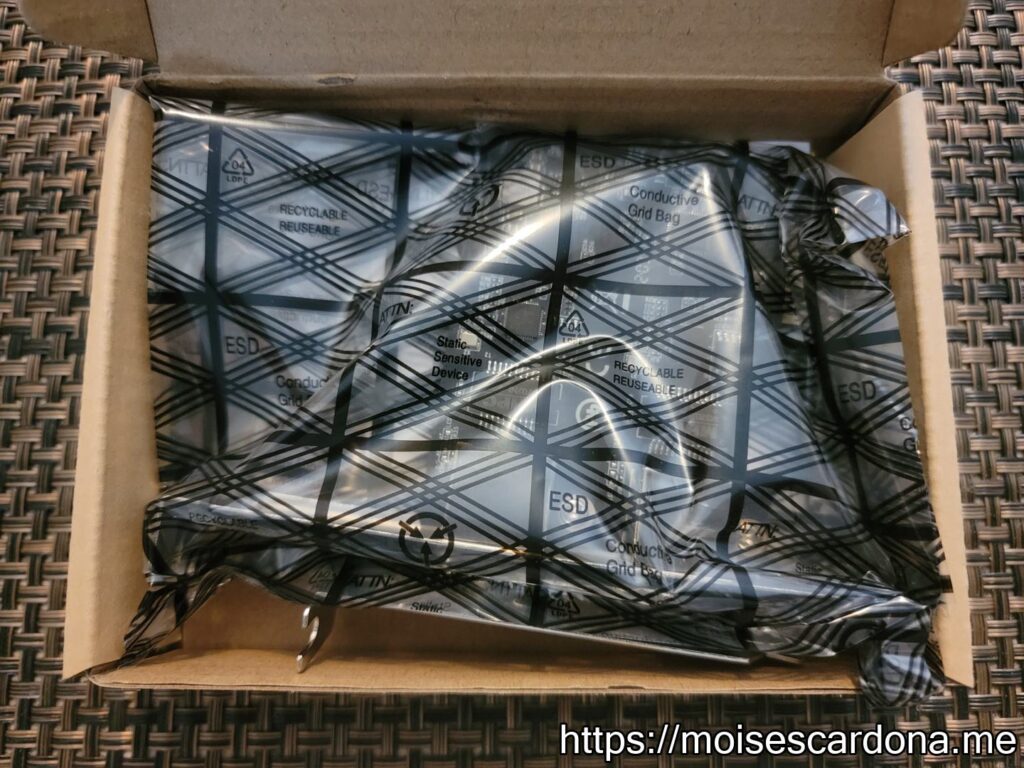
It also comes with the usual documentation and also has a driver CD for older operating systems:
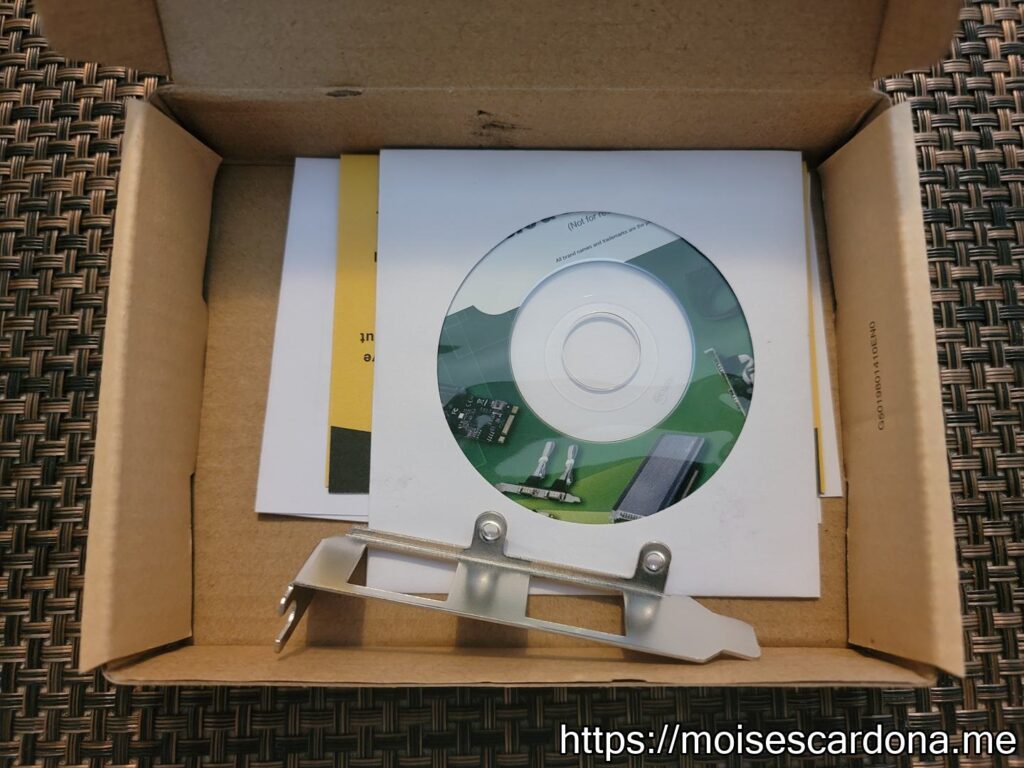
Here is the entire box content:
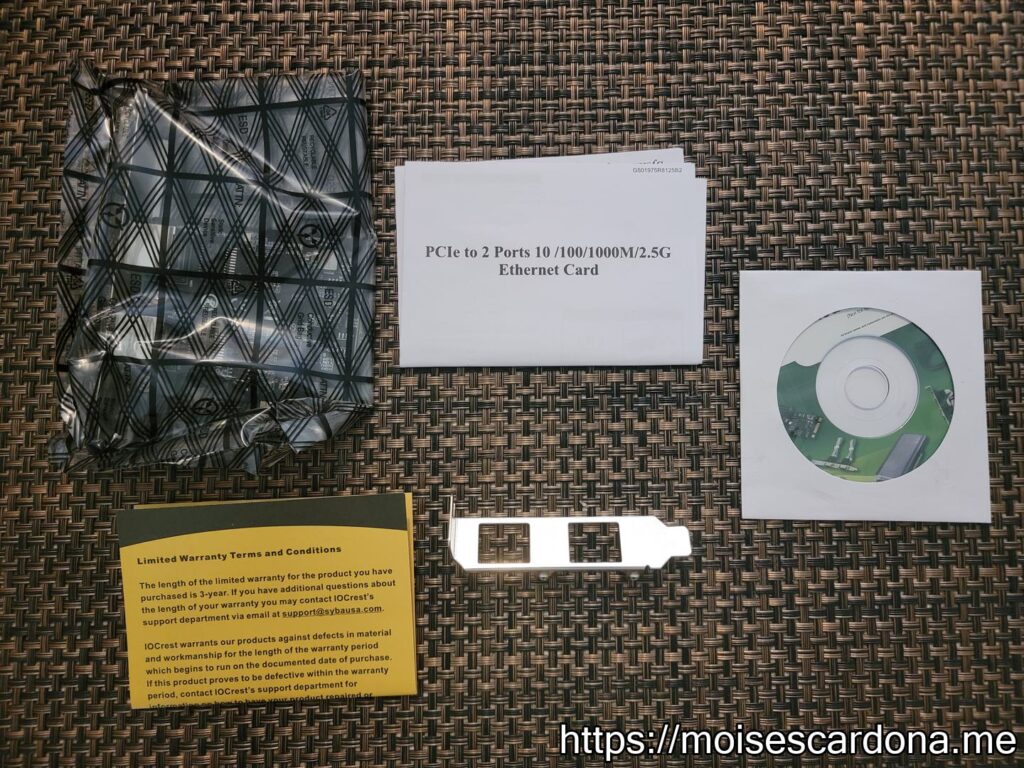
The card comes in an anti-static bag:
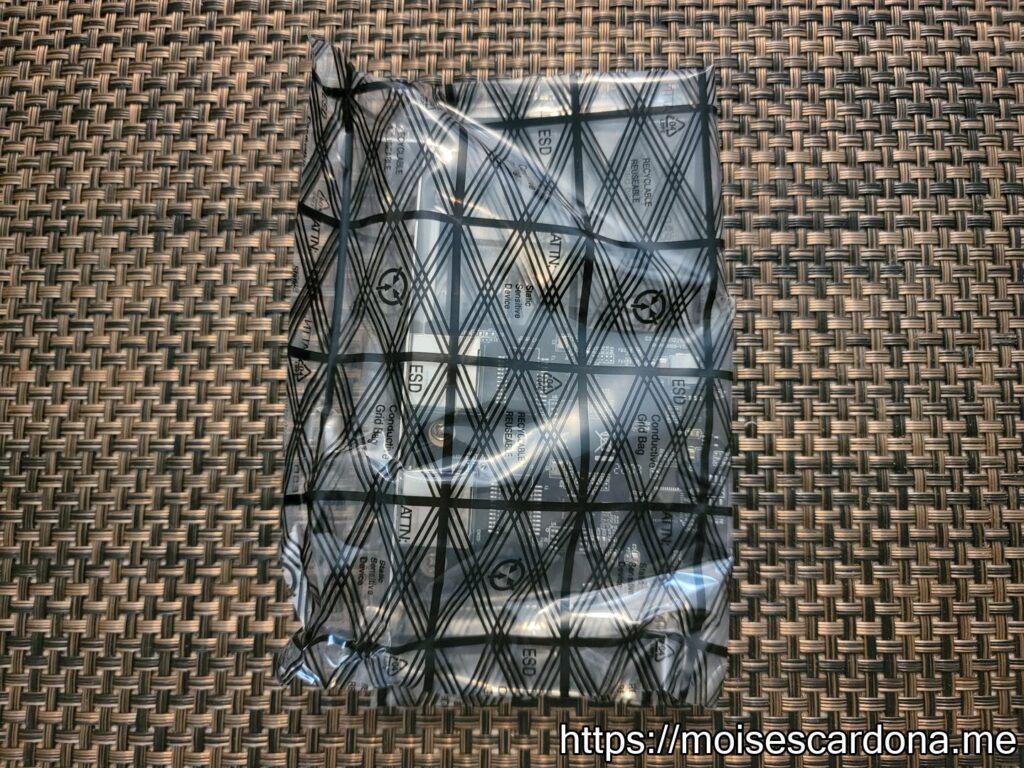
This card is powered by 2 Realtek RTL8125B chipsets. Each chip only supports a single 2.5gbit/s LAN port. They are connected to an ASMedia ASM1182E PCI Express x1 upstream port to 2 x1 downstream ports. This way, a single PCI Express x1 lane is connected to the 2 chips which are also PCI Express x1. On cards that have a single 2.5gbit port, you will not see the ASMedia chip as the Realtek chip is directly connected to the PCI Express x1 lane:
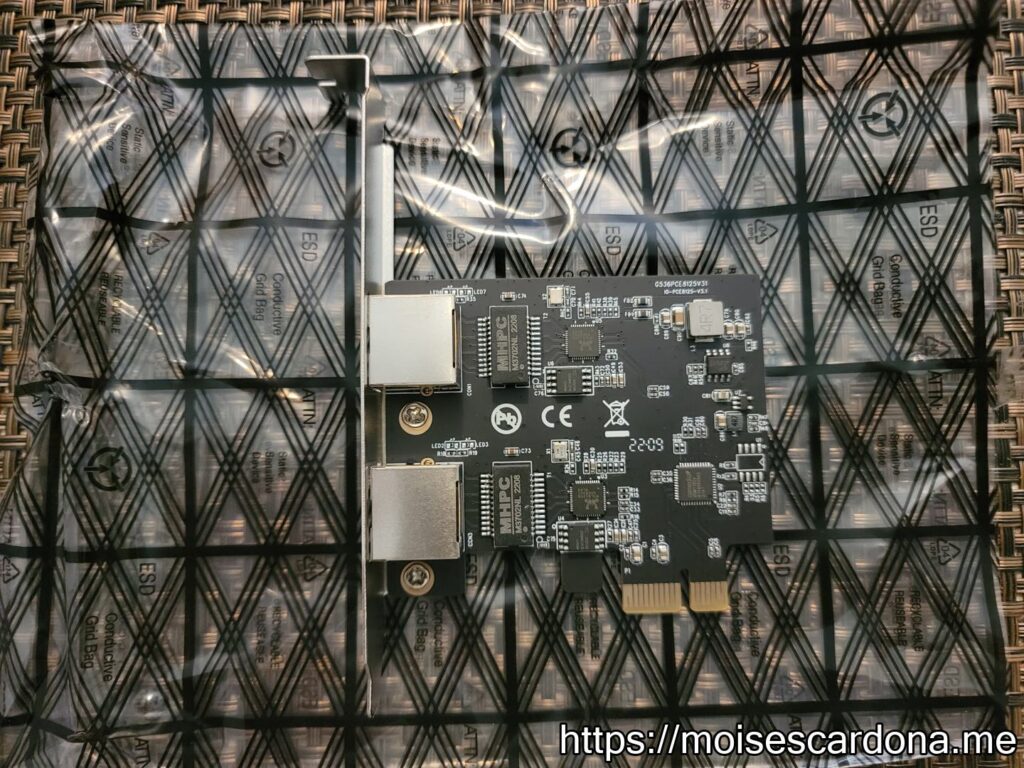
The back of this card has the manufacturer’s part and serial number. This card has a part number of SD-PEX24066:
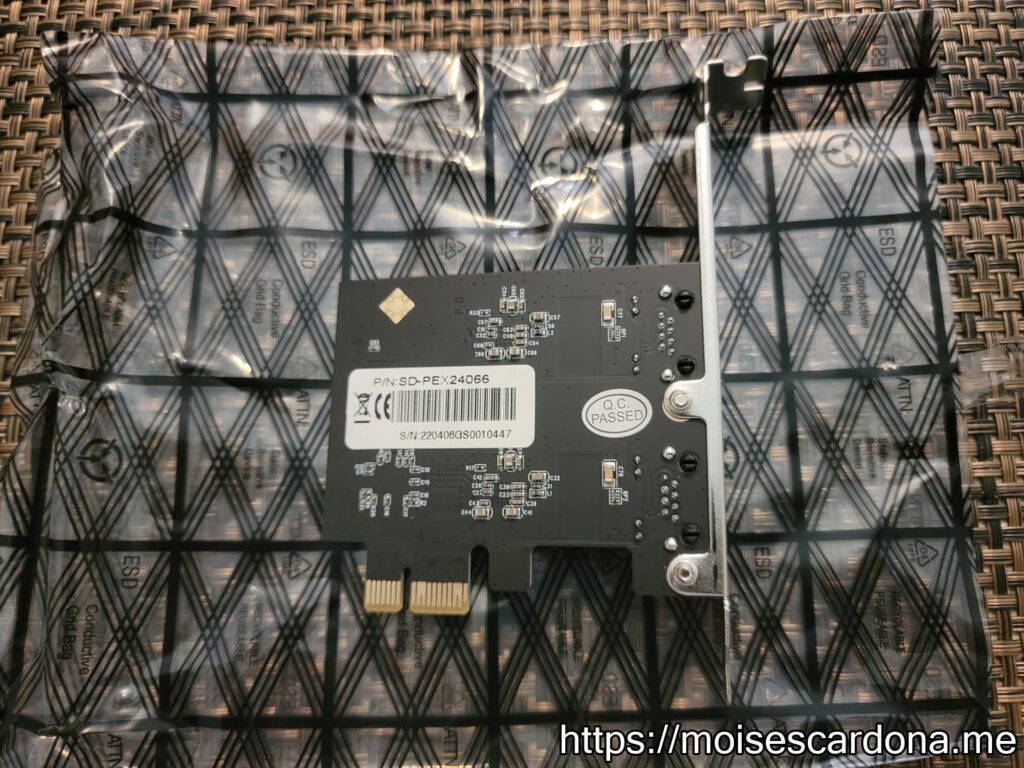
On the bracket side, we then see the 2 LAN ports:
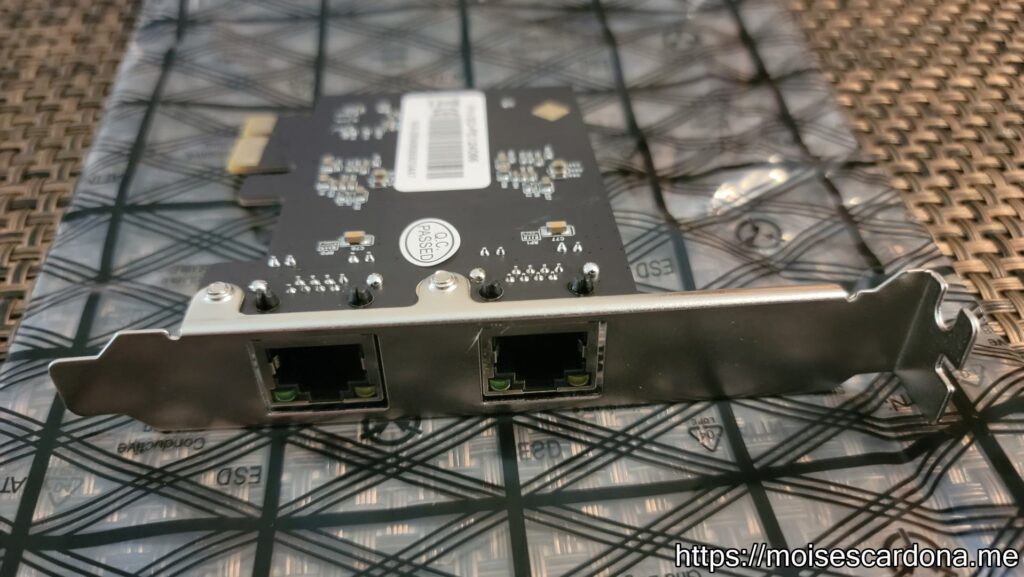
And here is the card installed in the machine:
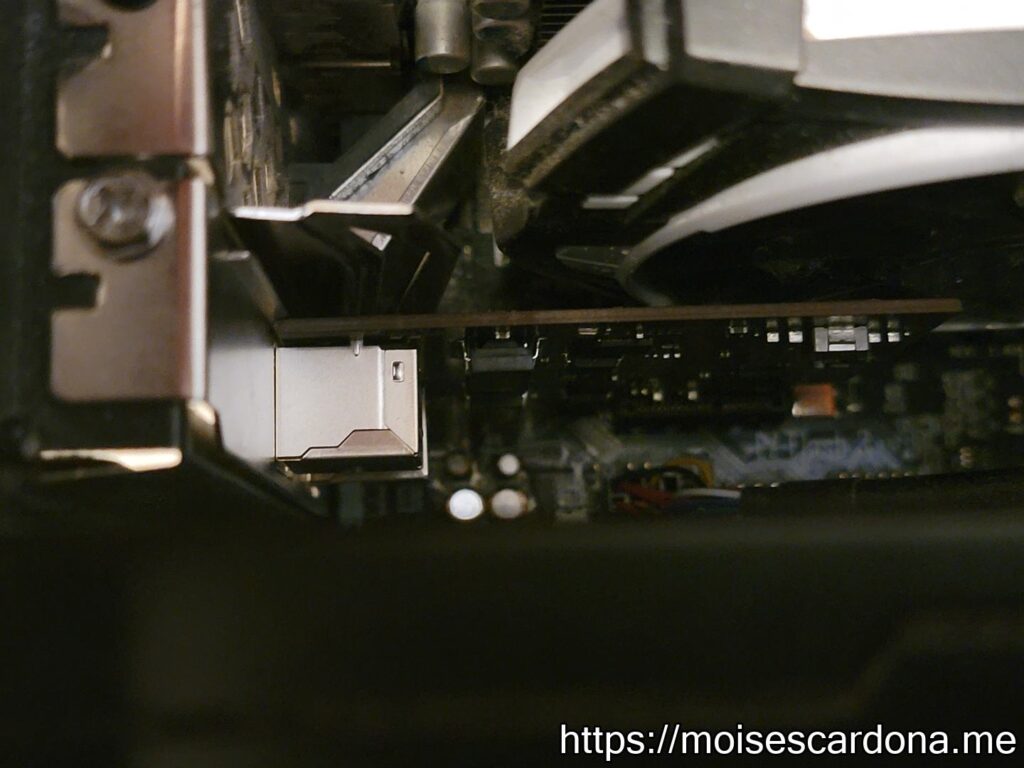
Linux detected the card and shows each port separately when using the lspci command:
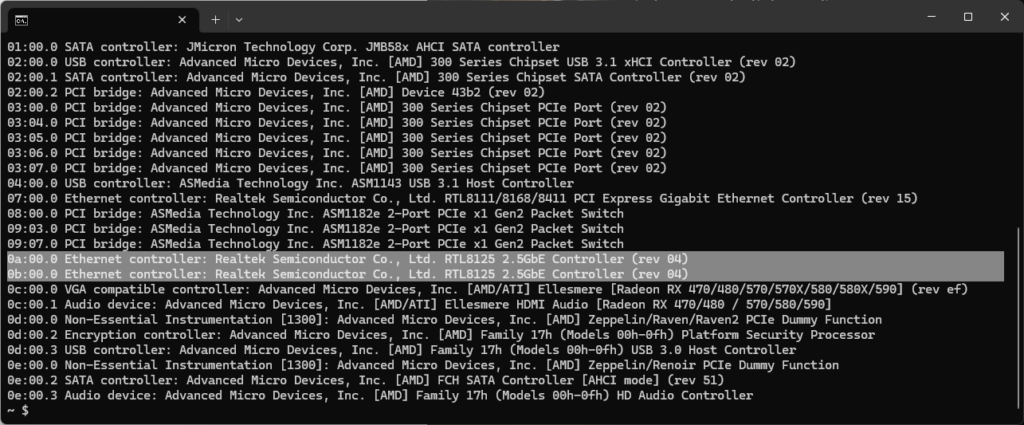
Using ethtool, we can confirm that both ports negotiated the speed at 2500mbit/s:
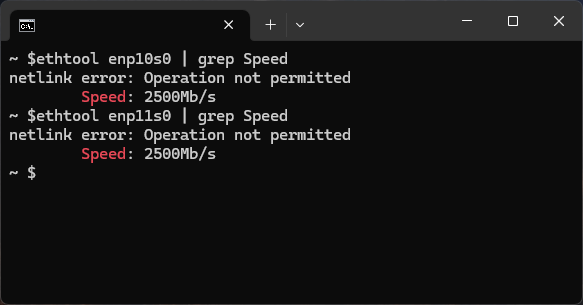
Conclusion
The IOCREST PCI Express x1 to Dual 2.5gbit LAN card is a great choice to add 2 2.5gbit/s LAN ports to a desktop machine. It is a PCI Express x1 card, so you can use it on those spare PCI Express slots in your motherboard. It is backward-compatible with slower speeds (10, 100, and 1000) and will play nicely with Linux. The price is also attractive, costing just $40 dollars if you’re ok with having a Realtek-based PCI Express card.
You can get this card on Amazon at the following link:
Note: Links to Amazon are referral links. This site earns a small percentage from orders placed with those links, helping keep this site operating.